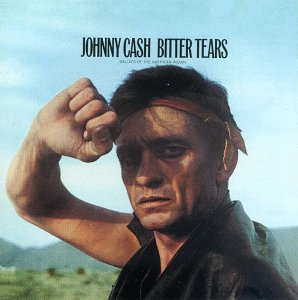See, Johnny Cash had always been concerned with the lives of Native people. In 1964, he'd recorded an eight-song album called "Bitter Tears (The Ballad of the American Indian)." That ballad was a sad one, John had said, and the songs reflected that. It contained "The Ballad of Ira Hayes," "Drums" and "The Vanishing Race," powerful songs aimed at directing the listener to the plight of the red man in contemporary North America.
It never took off. Few people have ever heard those songs except for the Hayes tune. But John was never far from the edges of the lines of support for the cause of Native rights. When he read my pieces, he wanted to talk informally, off the record, to meet a Native Canadian writer, to learn more about the Native experience in this country.
Then we talked about ceremony and spirituality. We talked of sweat lodges, Sun dances, sacred pipes and prayer songs. We talked about the land and how allowing it to seep inside you, inhabit you, become you is such a transcendent experience that the spirituality of it is nearly impossible to express. He was an Indian, Johnny Cash, if not in blood then in sentiment and spirit.


No comments:
Post a Comment